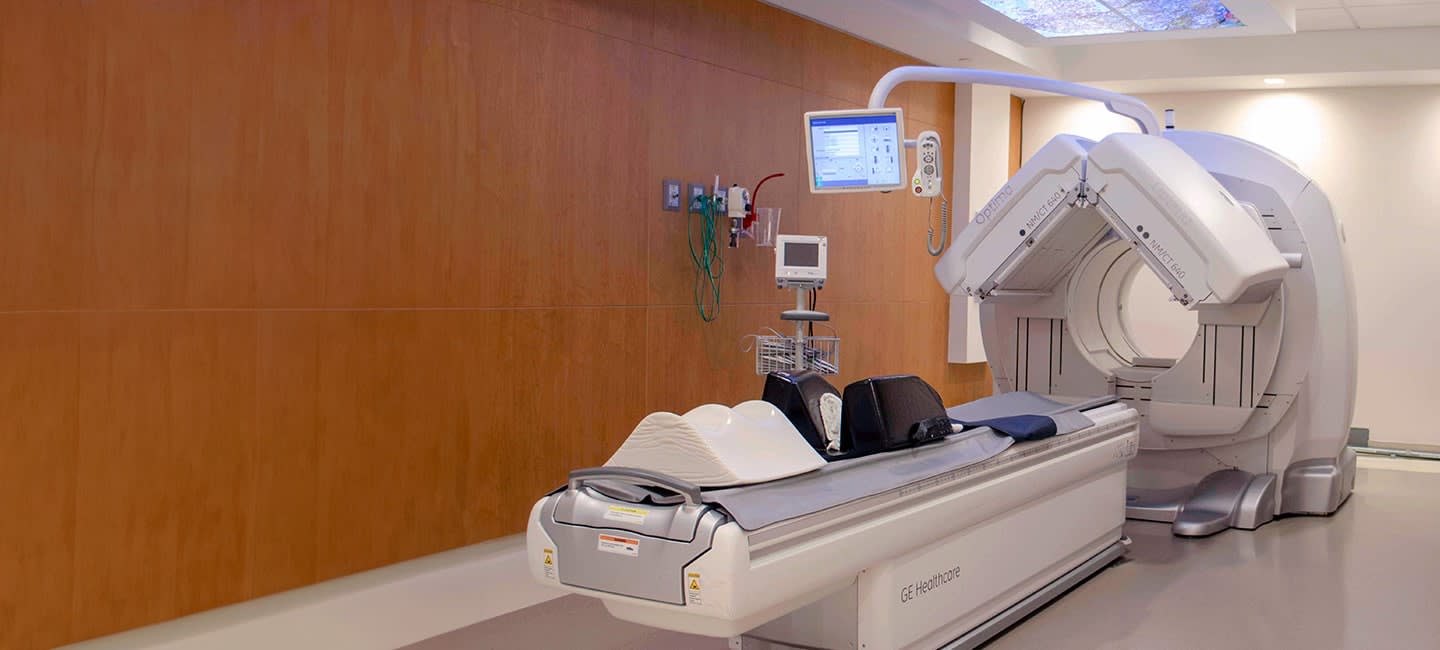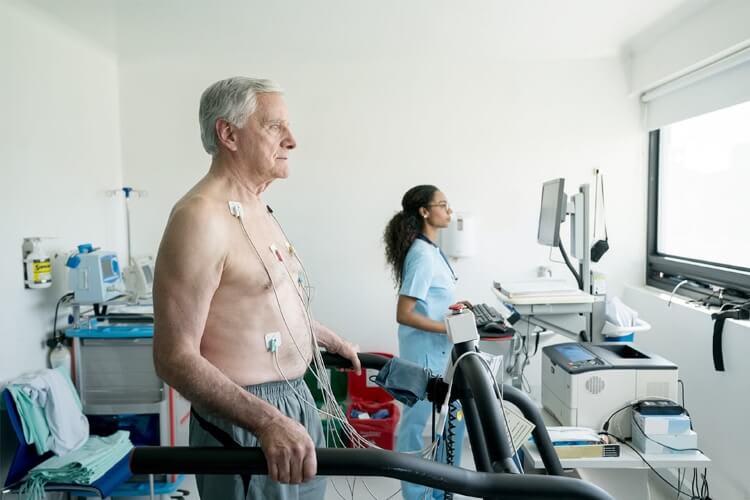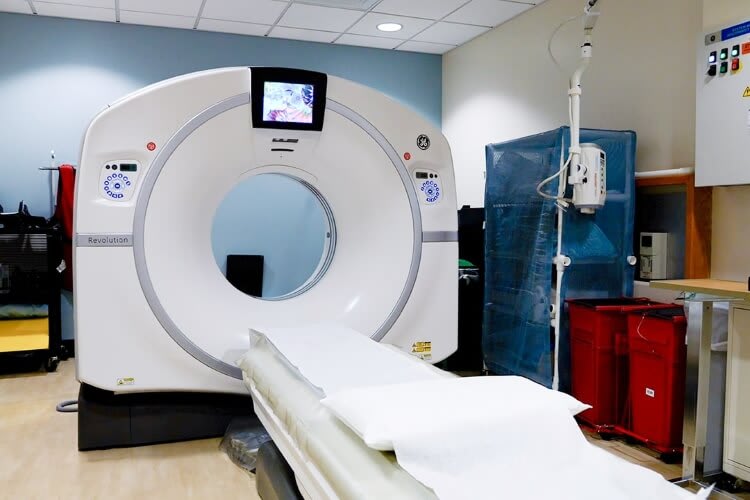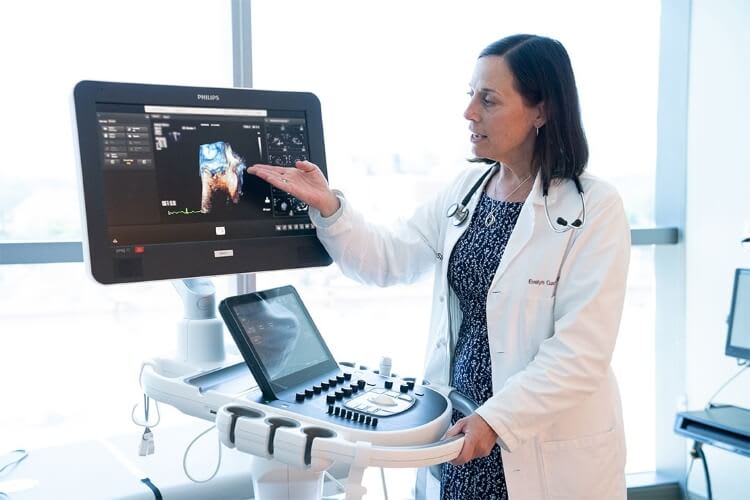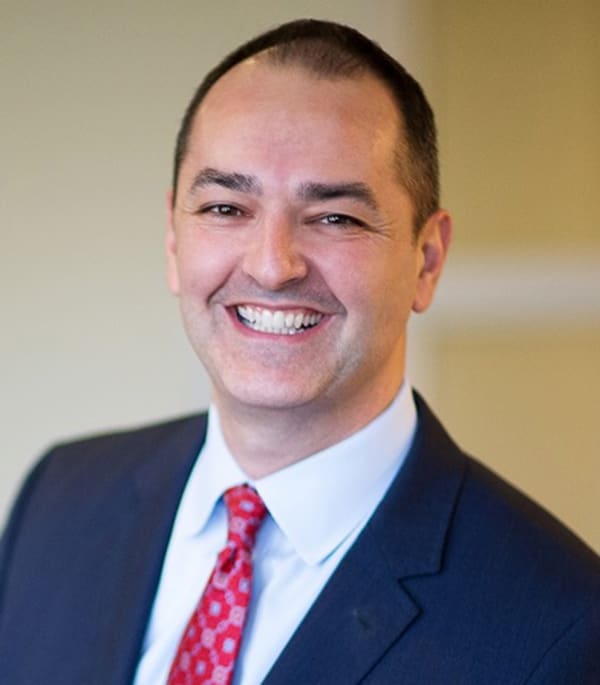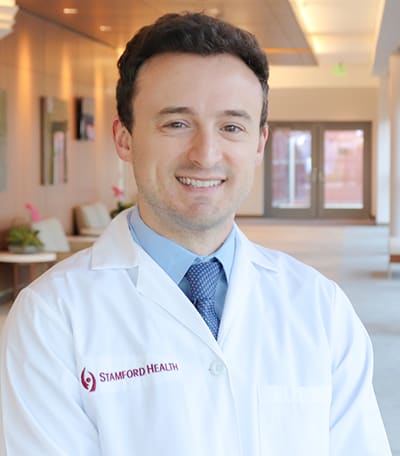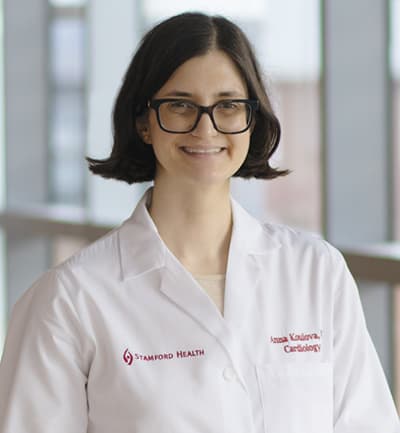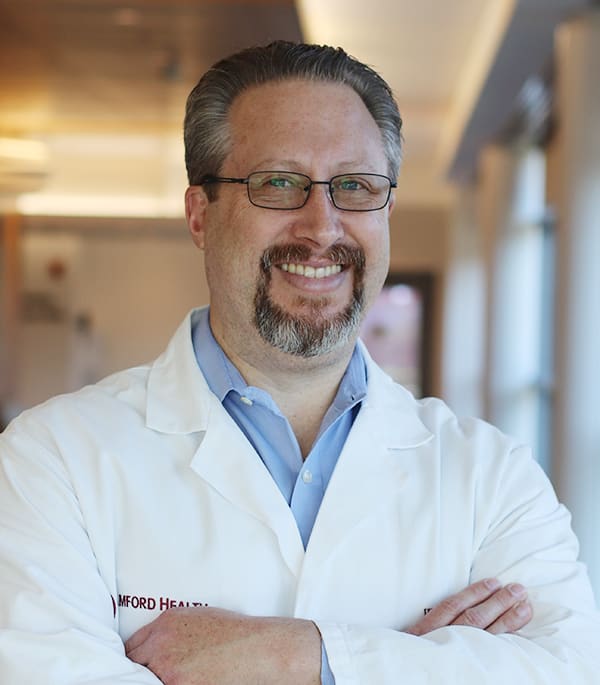Advanced Technology For Early, Accurate Detection
Early detection is one of the most important steps in treating heart disease effectively and successfully. At Stamford Health, we offer an array of testing procedures to deliver accurate, fast results. This allows our world-class heart and vascular team to work to develop a personalized treatment plan.
Types Of Cardiac Diagnostic Testing & Procedures
After reviewing symptoms, risk factors, and medical history, a cardiologist will conduct a specific series of tests. These procedures are usually painless. Once we receive the results, the heart care team works collaboratively to develop an effective treatment plan.
-
AMBULATORY BLOOD PRESSURE MONITORSA small machine that records your blood pressure every 15 to 30 minutes over the course of the day and night.
-
CARDIAC COMPUTED TOMOGRAPHY (CT) AND CORONARY CT ANGIOGRAPHYX-ray imaging techniques that use a computer to produce cross-sectional images of your heart and blood vessels.
-
CARDIAC EVENT RECORDER MONITORINGA battery-powered portable device that allows you to record your heart’s electrical activity when you have symptoms.
-
ELECTROCARDIOGRAM (ECG or EKG)A test that measures your heart’s rate and rhythm by placing electrodes on your chest, arms, and legs.
-
HOLTER AND EVENT MONITORINGA portable EKG monitor that measures your heart’s electrical activity continuously for a period of 24 to 48 hours.
-
NUCLEAR PERFUSION CARDIAC IMAGINGA procedure that uses nuclear medicine to evaluate your heart’s function and blood flow.
-
TRANSESOPHAGEAL ECHOCARDIOGRAPHY (TEE)An echocardiogram that uses ultrasound waves via a thin tube inserted into your esophagus to create images of your heart and arteries.
-
TRANSTHORACIC ECHOCARDIOGRAPHY (TTE)An echocardiogram that uses ultrasound waves to map a picture of your heart and arteries by moving a transducer over your chest.
-
TILT TABLE TESTTo determine the cause of fainting episodes, a table moves from a lying down to an upright position with a patient on it while the heart rate, EKG reading, and blood pressure are monitored.
-
VASCULAR ULTRASOUND (CAROTID ULTRASOUND)Ultrasound that evaluates your body’s circulatory system and helps identify blockages and detect blood clots.
State-Of-The-Art Equipment For Accurate Results
Meet Our Doctors
Convenient Locations Close to You
Schedule an appointment when (and where) it’s convenient for you.
Cardiac Testing FAQs
-
WHAT SYMPTOMS MAY INDICATE THE NEED FOR CARDIAC DIAGNOSTIC TESTING?Early detection is one of the most important steps in treating heart disease effectively and successfully. Common symptoms that may suggest the need for cardiac diagnostic testing include chest pain or discomfort, shortness of breath, irregular heartbeats, dizziness, and fatigue. However, it's crucial to consult with a health care professional to determine the appropriate diagnostic approach for your specific situation.
-
DO YOU NEED A REFERRAL FROM A GENERAL PRACTITIONER TO SCHEDULE A CARDIAC DIAGNOSTIC TEST?A referral from a cardiologist is typically required for cardiac diagnostic testing. This ensures that the tests ordered are tailored to your individual health needs. If you have specific concerns, it’s advisable to discuss them with your cardiologist who can guide you through the necessary steps.
-
HOW LONG DOES A TYPICAL CARDIAC DIAGNOSTIC TEST TAKE, AND WHAT SHOULD YOU EXPECT DURING THE PROCEDURE?The duration and specifics of cardiac diagnostic tests vary depending on the type of test prescribed by your doctor. Tests such as an electrocardiogram (ECG or EKG) may take around 5-10 minutes, while a cardiac MRI may take up to an hour. The health care team will guide you through each step of the procedure, ensuring your comfort and understanding throughout.
-
ARE THESE TESTS SAFE, AND ARE THERE ANY POTENTIAL RISKS INVOLVED IN UNDERGOING CARDIAC DIAGNOSTIC PROCEDURES?Cardiac diagnostic tests are generally safe and performed with a focus on patient well-being. While most procedures involve minimal risks, it’s essential to discuss any specific concerns or pre-existing conditions with your health care provider. They will provide you with detailed information about the safety measures associated with each test.
-
HOW SOON DO YOU RECEIVE THE RESULTS OF CARDIAC DIAGNOSTIC TESTING, AND WHO WILL EXPLAIN THE FINDNGS?The turnaround time for cardiac diagnostic test results varies, but your health care provider will strive to provide them as promptly as possible. A member of your health care team, often your cardiologist or a specialized nurse, will explain the findings to you in detail, discuss any implications, and address your questions or concerns. Open communication is key throughout this process.


